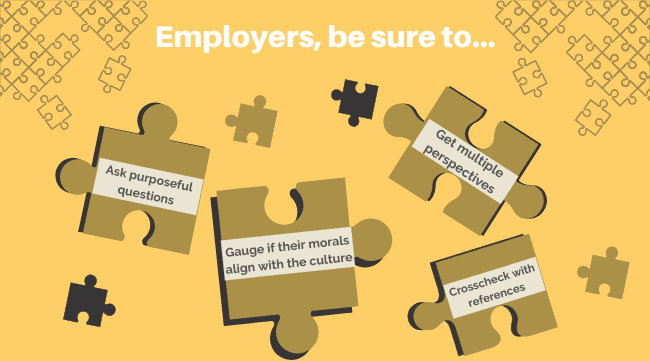 There are countless resources available to help individuals prepare for interviews, whether it be a workshop, an online resource or a book. While these tools are extremely helpful for those interviewing, it can make the job of the hiring manager difficult. Interviewers have to decipher the difference between someone who is just a good interviewee versus someone who is a good fit for the position. Of course, a good candidate can be great at interviewing, too, but it’s crucial a hiring manager doesn’t hire someone solely based on their impressive interview skills.
There are countless resources available to help individuals prepare for interviews, whether it be a workshop, an online resource or a book. While these tools are extremely helpful for those interviewing, it can make the job of the hiring manager difficult. Interviewers have to decipher the difference between someone who is just a good interviewee versus someone who is a good fit for the position. Of course, a good candidate can be great at interviewing, too, but it’s crucial a hiring manager doesn’t hire someone solely based on their impressive interview skills.
While great interview skills often translate to preparedness and professionalism, it can also be an indicator of overconfidence. Here are tips you can follow during and after the interview to help you decipher the difference between the best interviewee and the best candidate.
Make Questions Purposeful
Ask purposeful questions rather than ‘filler’ questions. Take time to think about what you want to know about the candidate. How did they handle tasks in their last position? What did they dislike about their previous job or manager? Asking questions like these will help you gauge the type of person they are and how they will potentially act in the available role.
It’s also useful to have the interviewee solve a problem or answer an unusual question. This will reveal how the candidate reacts to something unexpected. Although these questions sometime seem absurd to ask, it will help you uncover a candidate’s thought process and personality.
Do their Morals Align with the Culture
During the interview, make sure the candidate’s answers align with your organization’s culture and morals. You can assume the interviewee researched your organization and most likely has prepared examples and experiences to demonstrate how they would be a good fit within the company. Anyone can do this, regardless if they follow the same morals and goals as your organization. It’s important to listen closely in the interview to make sure all of their responses are consistent and they’re passionate about the topics they speak about.
Get Multiple Perspectives
It’s suggested that more than one member of the organization gets a say when hiring new talent. A common practice is to conduct a few back-to-back interviews with different interviewers. Each interview will be different, which will hopefully pull out different personality traits and information from the candidate. At the close of the interview process, compare the similarities and differences of the interviews with your colleagues to see if there are any inconsistencies or red flags.
Surprisingly, the interviewers are not the only individuals who should ‘interview’ the candidate. Ask the Receptionist (if there is one) to have a brief conversation with the individual and get their feedback on how it went. Maybe have another colleague give the individual a tour of the office. This takes the candidate out of the standard interview setting and lets their true personality shine.
Crosscheck with References
The candidate should provide you with at least two, if not three, references from past employers, colleagues, or business contacts. In the case the potential hire leaves you a reference of a family friend or childhood mentor, keep in mind that they may have biased opinions of the candidate. References should provide you with an outside opinion of the interviewee’s characteristics and actions.
Call more than one reference provided to verify what each has to say about the candidate. It’s important to crosscheck the references’ opinions with what the candidate has said about themselves. This will allow you to make sure the candidate was truly expressing who they are, rather than just saying everything that fits the job description.
 You can avoid post-hiring doubts by following these tips the next time your organization is hiring. No matter what the position is, implementing these techniques will help you hire the best talent for your organization.
You can avoid post-hiring doubts by following these tips the next time your organization is hiring. No matter what the position is, implementing these techniques will help you hire the best talent for your organization.
Want more information that will help your organization succeed? Subscribe to our JOHNLEONARD blog below and receive the latest advice and tips!
